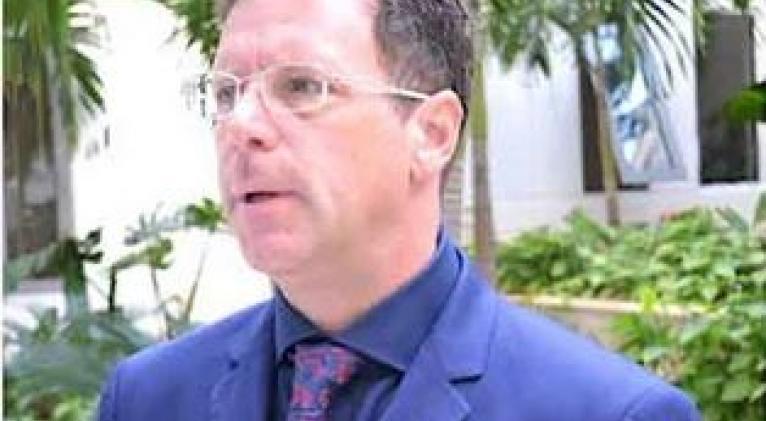Between Blockades and Agreements: Cuba–U.S. Trade
especiales

Paul Johnson, president of the U.S.–Cuba Agricultural Coalition (founded in 2014), stated that imports to the island increased by 17% in the first half of 2025, along with greater product diversification, despite persistent obstacles such as the U.S. blockade—thanks in part to measures adopted within the Caribbean nation.
During the opening session of the sixth edition of the Cuba–U.S. Agricultural Conference, held in Havana, Johnson listed rice, eggs, poultry, wheat, corn, soybean oil, and other foods and industrial supplies as the most traded products to date.
According to Johnson, bilateral cooperation continues to show tangible potential in strategic sectors such as agriculture, scientific research, and commerce.
Progress in Academic and Technical Agreements
He also highlighted advances in academic and technical accords, including memoranda of understanding between universities and productive entities from both nations. Johnson expressed optimism that commercial dialogue will continue to progress for the benefit of producers and consumers on both sides.
Nevertheless, the prominent advocate for policy change toward Cuba within U.S. business circles acknowledged that structural barriers persist—among them, financial limitations stemming from Cuba’s inclusion on the U.S. unilateral list of state sponsors of terrorism.
Strengthening Cooperation
For his part, Andrés Schade, one of the U.S. executives involved in bilateral cooperation, recalled that in 2024 a trilateral agreement was signed between the Agricultural Center of Louisiana State University, the U.S. Department of Agriculture, and Cuba’s Ministry of Agriculture.
“The goal of our trip is to continue this collaboration established in last year’s memorandum,” he stated, underscoring the importance of sharing production experiences.
“I think it is essential for us—especially for our researchers—to come here and learn about existing production practices, as well as opportunities to improve them and the varieties being developed in Cuba.”
Meanwhile, fifth-generation farmer P. J. Haynie expressed enthusiasm about participating in the conference “because we want to ensure that the Cuban people have access to high-quality rice for consumption.”
Exchanging Productive Experiences
Haynie, director general of Haynie Family Foods—a company dedicated to cultivating corn, soybeans, rice, and wheat—told Prensa Latina that he was pleased to exchange with Cuban farmers on sustainable rice cultivation techniques aimed at achieving higher yields.
“Agriculture feeds seven billion people daily, and it is projected that by 2050 that number will reach nine billion. Regardless of administrations or political changes, we all have to eat, and we want to ensure that we consume products of the highest possible quality.”
For 11 years, U.S. agricultural organizations, corporations, and producers have interacted with their Cuban counterparts to promote cooperation in food trade and production. The conference remains one of the few remnants of the Obama-era rapprochement, when Washington and Havana shared an explicit willingness to advance bilateral relations.
Trade in One Direction
At the previous conference, held in May 2024, Johana Tablada, deputy director of the U.S. department at Cuba’s Ministry of Foreign Affairs, reminded participants that the food sector represents the “only meaningful window” available amid Washington’s sanctions. However, trade flows in only one direction—from the United States to the Caribbean nation.
“We know that U.S. regulations, laws, and government decisions do not seem to move toward easing relations with Cuba or allowing broader commercial exchange. We also know that much was said about potential changes for Cuba’s non-state sector, but none have occurred. Hopefully one day they will,” the diplomat told EFE.














Add new comment